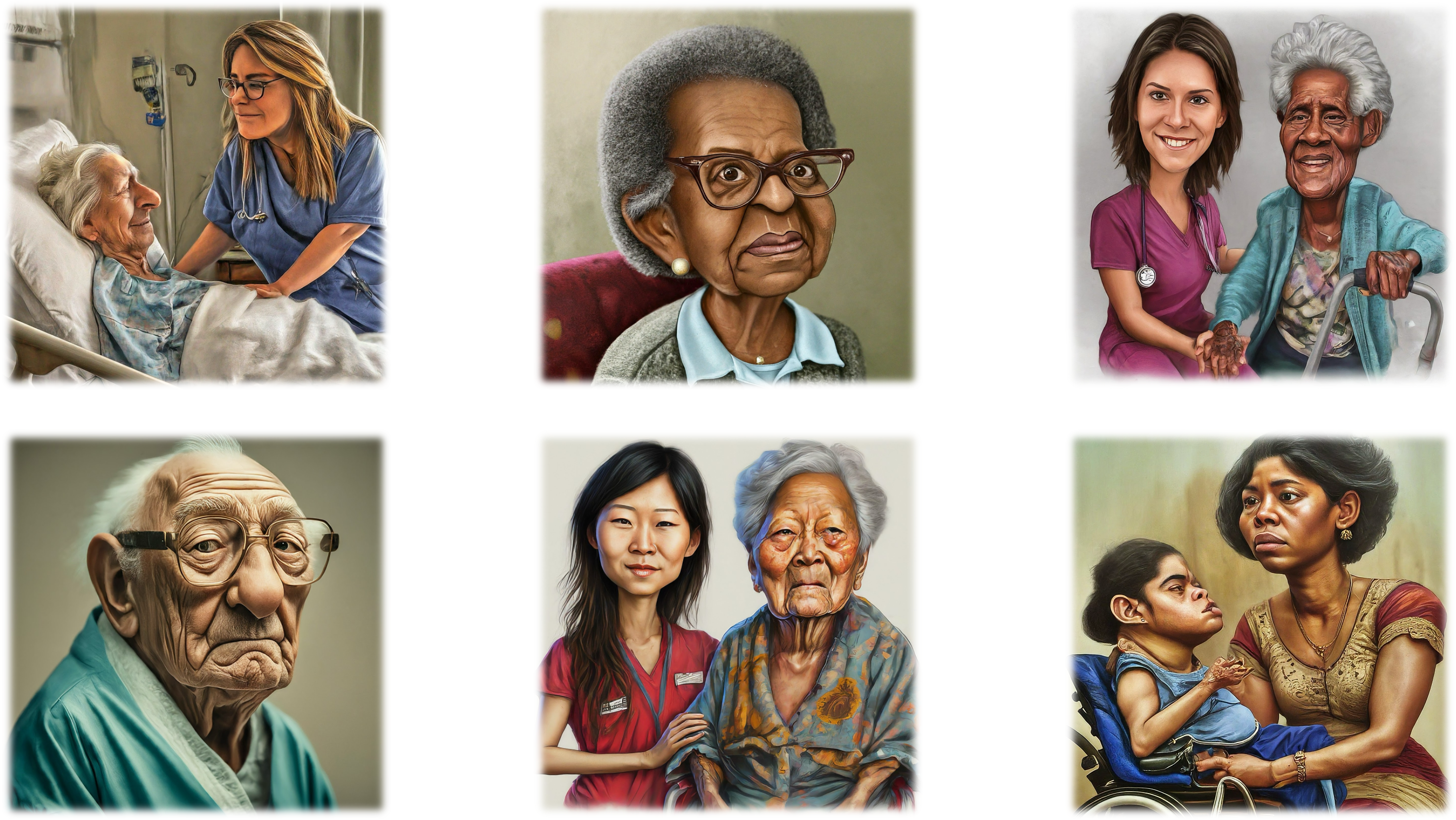Smart Caregiver Assistant
eumius
Built by caregivers, for caregivers. Eumius is empowering family caregivers and growing a care community for the caregiving ecosystem. Eumius: One-Stop Solution for Family Caregiving! To connect family caregivers, professional service providers, caregiving assistants, expert advice and resources in your community.

Learn more about
Smart Caregiver Assistant
You can focus on caring for your loved ones. Let Eumius's SmartAssist - Smart Caregiver Assistant app help you organize your caregiving.
AI-Driven Smart Caregiver Assistant
SmartAssist - AI-driven smart assistant app to take the mundane work out of caregiving, so that you can dedicate your time to care for your loved ones.
For Caregivers, By Caregivers
The smart assistant app is built by caregivers who apply their experience on their caregiving journey to help every family caregiver more resilient.
Smartphone-Based
Eumius SmartAssist is a mobile-centric app on your smart device for maximum caregiver convenience. Just chat with SmartAssist on your smartphone.
Secured From the Ground Up
Privacy and data security is utmost important to all of us. SmartAssist has privacy, security, and HIPAA-compliant built-in from the ground up.
Family Care Circle
For the best care of your loved one, it requires the coordination of everyone in a care circle. Eumius SmartAssist faciliates frictionless collaboration.
Caregiving Community
Eumius builds a community for fellow caregivers to share their experiences, challenges on the journey to provide care, and helpful resources.
Let Us Organize Your Caregiving
SmartAssist Overview
Built by Caregivers, For Caregivers
Focus on caring for your loved ones. Let us organize the mundane caregiving tasks for you.Health & Wellness
Organize your loved one's healthcare information, prescriptions, appointments and events, and finding resources.
Respite Care Management
Simplify caregiving service scheduling, TODO list workflow, care team coordination, and care care note updates.
Finances
Keep track of accounts of banking and brokerage, retirement, trusts, annuities, insurance, social security, loans, and taxes for your loved one.
Legal Matters
Help guide you through the legal matters for your loved one such as power of attorney, trust, will, advance directive, living will, and more.
Personal Information
Help you keep track of your loved one's personal information such as birth certificate, driver's license, passport, etc.
Emergency Contacts
Manage situation-based emergency contacts and share among care circle members in case your loved one has an emergency.
Home Logistics
From house maintenance to utility bills, from homeowner's insurance to family pets, SmartAssist helps you organize for your loved one.
Social Circle
A list of people to be notified is always an after-thought. We keep track of your loved one's social circle as well as who to notify for events.
Digital Legacy Plan
In this digital world, organizing the digital footprints for your loved ones is exceedingly challenging. Let SmartAssist help you organize.
Long-Term Care
Facilitate your research on long-term care facilities as well as oversee the long-term care logistics for your loved one.
Healthcare Proxy & Power of Attorney
Guide you through the process of creating healthcare proxy and power of attorney for your loved one's interests.
End-of-Life Care & Wishes
The thought of a loved one approaching the end is emotionally taxing. Let's help them plan for the end-of-life care and wishes with dignity.
After-Life & Final Arrangements
Outline the things to plan for in case of your loved one passes, including funeral arrangement, cremation or burial, funeral or celebration of life.
Get started with Eumius SmartAssist.
Step 1: Download App
Download eumius SmartAssist on to your smart device. Register your account and start simplifying your caregiving journey. To download the app, click Download.
Step 2: Who Are You Caring For?
Enter basic information of the person receiving care and create a care circle. Chat with SmartAssist via the keyboard or voice-activated key entries.
Step 3: Invite Others to Care Circle
Invite other members to the care circle of the care recipient. Perhaps walk through the onbarding wizard's questionnaire to get started.
Ready!

FAQs
Frequently Asked Questions
Here are some FAQs to gain insights into Eumius and how we empower family caregivers with tools and resources to elevate your spirit, make your caregiving journey less taxing and more enjoyable.
Why Eumius?
Eumius is a platform designed to support and empower family caregivers. It facilitates the sharing of caregiving responsibilities among a community, providing easy access to valuable resources. Eumius also offers a marketplace to meet various caregiving needs. By automating and simplifying routine tasks, Eumius enables caregivers to concentrate on what truly matters - caring for their loved ones. The AI-driven Smart Caregiver Assistant of Eumius strengthens the resilience and efficiency of caregivers, ensuring they are well-equipped to handle the challenges of caregiving.
What is Eumius SmartAssist?
SmartAssist, the revolutionary AI-driven mobile app designed to streamline and organize everyday tasks for caregivers, allowing them to devote their time and attention to their loved ones. With the widespread use of smart devices in our daily lives, accessing SmartAssist is as simple as chatting with it on your preferred platform, available on both iOS and Android. SmartAssist goes beyond basic healthcare tracking, offering a comprehensive solution for managing all relevant information surrounding the care recipient. This includes, but is not limited to, financial and legal matters, ensuring caregivers have a complete picture and easy access to all necessary details.
What is a Care Circle in SmartAssist?
A Care Circle is a group of invited care members who form a care team to support, care for, and assist a loved one in need. The Care Circle's administrator, known as the account owner, creates it to manage the care of their loved one. The Care Circle is named after the individual receiving care. The administrator, typically, invites family members, friends, and sometimes professional caregivers to collaborate and coordinate their efforts, ensuring the well-being of the person they are caring for. By working together, Care Circle members can effectively share responsibilities, offer emotional support, and ensure that the loved one's needs are met, creating a sense of community and connection for all involved.
What is a Caregiver Valet?
A caregiver valet (a.k.a. care concierge) is a professional service that provides personalized assistance and support to family caregivers. This service aims to help caregivers manage the various aspects of caregiving, including coordinating medical appointments, arranging in-home care, managing medications, and handling daily tasks. A caregiver valet typically offers a range of services tailored to the unique needs of each caregiver and their loved one. These services may include: 1. Care coordination, 2. In-home care management, 3. Medication management, 4. Daily tasks, 5. Emotional support, 6. Resource referrals, 7. Legal and financial assistance, 8. Advocacy. A caregiver valet service can help alleviate the stress and burden of caregiving by providing expert assistance and support, allowing caregivers to focus on their own well-being and maintaining a healthy work-life balance. Eumius Caregiver Valet Service is one such offering.
What is Caregiver Burnout?
Caregiver burnout is a state of physical, emotional, and mental exhaustion that may occur when a family member or loved one becomes a caregiver for someone in need, such as an aging parent, a chronically ill spouse, or a disabled child. The constant demands and stress of caregiving can often become overwhelming, leading to burnout.
What are Some Common Symptoms of Caregiver Burnout?
Symptoms of caregiver burnout may include: 1. Feelings of irritability, impatience, or anger, 2. Withdrawal from friends, family, and social activities, 3. Changes in appetite, weight, or sleep patterns, 4. Increased use of alcohol, tobacco, or drugs, 5. Neglect of one's own physical and emotional health, 6. Decreased job performance, 7. Feelings of helplessness, hopelessness, or pessimism, 8. Frequent headaches, bodily pain, or other physical problems, 9. Emotional numbness or detachment
What One Should Do About Preventing Caregiver Burnout?
Preventing caregiver burnout involves implementing strategies that promote self-care, maintain a healthy balance, and seek support from others. Here are some steps to help prevent caregiver burnout: 1. Seek support: Reach out to friends, family, or professional services for assistance with caregiving tasks. Joining a support group can also provide a valuable opportunity to connect with others facing similar challenges. 2. Manage time effectively: Prioritize tasks, delegate responsibilities, and establish a daily routine that includes time for self-care and relaxation. 3. Stay healthy: Maintain a balanced diet, exercise regularly, and ensure adequate sleep. Schedule regular check-ups with healthcare professionals to monitor physical and mental health. 4. Set boundaries: Establish clear boundaries between caregiving responsibilities and personal life. Learn to say 'no' when necessary and avoid overcommitting. 5. Practice stress management techniques: Engage in activities that promote relaxation, such as meditation, deep breathing exercises, yoga, or mindfulness practices. 6. Seek respite care: Arrange for temporary relief from caregiving duties through respite care services, which can provide a much-needed break for caregivers. 7. Cultivate a positive attitude: Focus on the rewards and positive aspects of caregiving, and practice gratitude for the opportunity to support a loved one. 8. Educate yourself: Learn about the condition or needs of the care recipient, and seek resources and information to better manage caregiving tasks. 9. Develop coping strategies: Identify and address personal triggers that may contribute to stress or burnout, and develop healthy coping mechanisms. 10. Seek professional help: If feelings of burnout persist, consult a healthcare professional for guidance and support.
What Actions Should be Taken to Address Caregiver Burnout?
If someone is experiencing caregiver burnout, it is essential to address the situation promptly to prevent further harm to their physical and mental health. Here are some steps to rectify the situation: 1. Recognize the signs: Encourage the caregiver to acknowledge the symptoms of burnout and validate their feelings. 2. Seek professional help: Encourage the caregiver to consult a healthcare professional for guidance and support. A mental health professional, such as a therapist or counselor, can provide valuable resources and strategies to manage burnout. 3. Encourage self-care: Remind the caregiver of the importance of prioritizing their own physical and emotional well-being. Encourage them to engage in activities that promote relaxation and stress reduction, such as exercise, meditation, or hobbies. 4. Provide practical assistance: Offer to help with caregiving tasks or arrange for respite care to provide the caregiver with a much-needed break. 5. Foster a support network: Encourage the caregiver to reach out to friends, family, or a support group for emotional support and practical assistance. 6. Set realistic expectations: Help the caregiver establish realistic goals and expectations for their caregiving role, and encourage them to delegate tasks when necessary. 7. Educate yourself: Learn about caregiver burnout and its impact on mental and physical health. Share this information with the caregiver and offer resources and support. 8. Monitor progress: Regularly check in with the caregiver to assess their well-being and offer ongoing support and encouragement. 9. Celebrate small victories: Acknowledge and celebrate the caregiver's efforts and accomplishments, no matter how small, to foster a sense of accomplishment and motivation. 10. Encourage a healthy work-life balance: If the caregiver is employed, work with them to establish a healthy balance between their professional and personal responsibilities. Encourage them to communicate openly with their employer about their caregiving role and seek accommodations when necessary.


